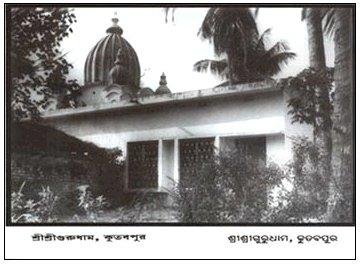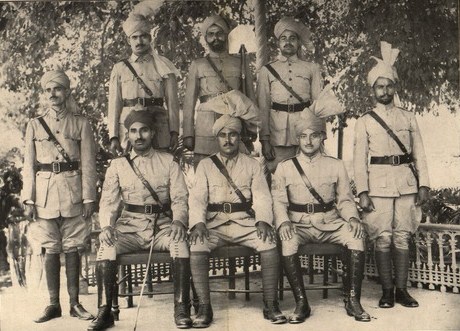|
Modern Review (Calcutta)
''The Modern Review'' was a monthly magazine published in Calcutta founded and edited by Ramananda Chatterjee. It was in circulation between 1907 and 1995. The magazine emerged as an important forum for the Indian nationalist intelligentsia. It carried essays on politics, economics, sociology, as well as poems, stories, travelogues, and sketches. Radhakamal Mukerjee published his early, pioneering essays on environmental degradation in India here and Verrier Elwin reports from the Gond country were first published here. Numerous other friends of India including Rev. Jabez T. Sunderland wrote regularly for the magazine. Another indication of the journal's stature was the publication, within its pages, of Jawaharlal Nehru's pseudonymous autocritique ''Rashtrapati'', by ‘Chanakya’ in November 1937. Ramachandra Guha indicates that alone was evidence that it was "leading journal of the progressive Indian intelligentsia." The ''Modern Review'' had a sister magazine ''Prabasi'' ... [...More Info...] [...Related Items...] OR: [Wikipedia] [Google] [Baidu] |
Ramananda Chatterjee
Ramananda Chatterjee ( bn, রামানন্দ চট্টোপাধ্যায়) (29 May 1865 – 30 September 1943) was founder, editor, and owner of the Calcutta based magazine, the '' Modern Review''. He has been described as the Father of Indian Journalism. Early life Chatterjee was born in a middle class Bengali Hindu Brahmin family, the third child to Srinath Chattopadhyay and Harasundari Devi in the village of Pathakpara in the district of Bankura. He received his primary education in a Bengali medium school, even though primary education the English medium had become available by then in Bankura. As a child he liked poetry and soon he was drawn to patriotism through the poems of Rangalal Bandyopadhyay. He passed Student-Scholarship Examination in 1875 from Bankura Banga Vidyalaya. He passed the Entrance from Bankura Zilla School in 1883 arrived at Kolkata to pursue higher education. In 1885, he passed the F.A. from the St. Xavier's College and took admi ... [...More Info...] [...Related Items...] OR: [Wikipedia] [Google] [Baidu] |
Prabasi
''Prabasi'' ( bn, প্রবাসী) was a monthly Bengali language literary magazine edited by Ramananda Chatterjee. History and profile ''Prabasi'' was founded by Ramananda Chatterjee in 1901 and ran for over 60 years. It published many important Bengali authors, the most significant being Nobel laureate Rabindranath Tagore who published regularly in it from 1914 until his death. "It is no exaggeration to say that agore'smajor creations reached Bengali homes through 'Prabasi''" There were over 350 contributors during its existence, including most of the major poet and prose writers of the day. The '' National Encyclopedia of Bangladesh'' said "Prabasi's fame remains almost unsurpassed by any other Bengali periodical." From 1901 to 1905 it was published in Allahabad. Then it was headquartered in Kolkata. When ''Prabasi'' first appeared, it pioneered a mix of book excerpts, poetry and one-act plays, alongside reviews and essays. It also included serialized fiction, includi ... [...More Info...] [...Related Items...] OR: [Wikipedia] [Google] [Baidu] |
Literature Of Indian Independence Movement
Literature is any collection of written work, but it is also used more narrowly for writings specifically considered to be an art form, especially prose fiction, drama, and poetry. In recent centuries, the definition has expanded to include oral literature, much of which has been transcribed. Literature is a method of recording, preserving, and transmitting knowledge and entertainment, and can also have a social, psychological, spiritual, or political role. Literature, as an art form, can also include works in various non-fiction genres, such as biography, diaries, memoir, letters, and the essay. Within its broad definition, literature includes non-fictional books, articles or other printed information on a particular subject.''OED'' Etymologically, the term derives from Latin ''literatura/litteratura'' "learning, a writing, grammar," originally "writing formed with letters," from ''litera/littera'' "letter". In spite of this, the term has also been applied to spoken or ... [...More Info...] [...Related Items...] OR: [Wikipedia] [Google] [Baidu] |
English-language Magazines Published In India
English is a West Germanic language of the Indo-European language family, with its earliest forms spoken by the inhabitants of early medieval England. It is named after the Angles, one of the ancient Germanic peoples that migrated to the island of Great Britain. Existing on a dialect continuum with Scots, and then closest related to the Low Saxon and Frisian languages, English is genealogically West Germanic. However, its vocabulary is also distinctively influenced by dialects of France (about 29% of Modern English words) and Latin (also about 29%), plus some grammar and a small amount of core vocabulary influenced by Old Norse (a North Germanic language). Speakers of English are called Anglophones. The earliest forms of English, collectively known as Old English, evolved from a group of West Germanic (Ingvaeonic) dialects brought to Great Britain by Anglo-Saxon settlers in the 5th century and further mutated by Norse-speaking Viking settlers starting in the 8th and ... [...More Info...] [...Related Items...] OR: [Wikipedia] [Google] [Baidu] |
Defunct Political Magazines
{{Disambiguation ...
Defunct (no longer in use or active) may refer to: * ''Defunct'' (video game), 2014 * Zombie process or defunct process, in Unix-like operating systems See also * * :Former entities * End-of-life product * Obsolescence Obsolescence is the state of being which occurs when an object, service, or practice is no longer maintained or required even though it may still be in good working order. It usually happens when something that is more efficient or less risky r ... [...More Info...] [...Related Items...] OR: [Wikipedia] [Google] [Baidu] |
Defunct Magazines Published In India
{{Disambiguation ...
Defunct (no longer in use or active) may refer to: * ''Defunct'' (video game), 2014 * Zombie process or defunct process, in Unix-like operating systems See also * * :Former entities * End-of-life product * Obsolescence Obsolescence is the state of being which occurs when an object, service, or practice is no longer maintained or required even though it may still be in good working order. It usually happens when something that is more efficient or less risky r ... [...More Info...] [...Related Items...] OR: [Wikipedia] [Google] [Baidu] |
Drighangchoo
''Drighangchoo'' (Bengali: দ্রিঘাংচু) was an independent magazine published from Kolkata (earlier Calcutta), India and it was the first print magazine in India to deal exclusively with "mature" comics and sequential graphic art. Its name draws inspiration from a fable of the same name by Sukumar Ray, which is about a troubled king's search for a mystery crow. The magazine began in 2009, when six comics enthusiasts from Jadavpur University and an alumnus decided to start a not-for-profit print magazine on comics for Indian readers. The first issue of ''Drighangchoo'' was published in 2009. The magazine was written in Bengali and English. Unlike the focus of "mainstream" Indian comics which heavily borrows from the syndicated superhero comics of the North, the issues of ''Drighangchoo'' encouraged local artists and the use of serious story-telling through black-and-white sequential art in the traditional comics format, and the use of experimental and indigenous I ... [...More Info...] [...Related Items...] OR: [Wikipedia] [Google] [Baidu] |
Nigamananda
Swami Nigamananda Paramahansa (born Nalinikanta Chattopadhyay; 18 August 1880 – 29 November 1935) was an Indian yogi, guru and mystic well known in Eastern India. He is associated with the Shakta tradition and viewed as a perfect spiritual master of vedanta, tantra, yoga and prema or bhakti. His followers idealized him as their worshipped and beloved thakura. Nigamananda was born into a Bengali Brahmin family in the hamlet of Kutabpur in Nadia district (at present Meherpur district Bangladesh). He was a sannyasi from Adi Shankar's dashanami sampradaya. After his ordination as a sannyasi, he came to be known as ''Paribrajakacharya Paramahansa Srimat Swami Nigamananda Saraswati Deva''. Nigamananda achieved siddhi (perfection) in four different sadhanas (spiritual disciplines): tantra, gyan, yoga and prema. Based on these experiences, he wrote five Bengali language books: ''Brahamcharya Sadhana'' (ब्रह्मचर्य साधन), ''Yogi Guru'' (यो� ... [...More Info...] [...Related Items...] OR: [Wikipedia] [Google] [Baidu] |
Scheduled Castes Federation
The Republican Party of India (RPI, often called the Republican Party or simply Republican) is a political party in India. It has its roots in the Scheduled Castes Federation led by B. R. Ambedkar. The 'Training School for Entrance to Politics' was established by Ambedkar in 1956 which was to serve as an entry point to the Republican Party of India (RPI). The first batch of the school consisted of 15 students. Its first batch turned out to be last batch as the school was closed after Ambedkar's death in 1956. Origins Independent Labour Party The Independent Labour Party (ILP) was a political Organisation formed under the leadership of B. R. Ambedkar on 15 August 1936. It opposed the brahmanical and capitalist structures in India, supported the Indian working class and sought to dismantle the caste system. The formation of the ILP was not welcomed or supported by the communist leaders, who argued that it would lead to a split in the working-class votes. Ambedkar repl ... [...More Info...] [...Related Items...] OR: [Wikipedia] [Google] [Baidu] |
Hindu Mahasabha
The Hindu Mahasabha (officially Akhil Bhārat Hindū Mahāsabhā, ) is a Hindu nationalist political party in India. Founded in 1915, the Mahasabha functioned mainly as a pressure group advocating the interests of orthodox Hindus before the British Raj and within the Indian National Congress. In the 1930s, it emerged as a distinct party under the leadership of Vinayak Damodar Savarkar, who developed the far-right ideology of Hindutva (Hindu-ness) and became a fierce opponent of the secular nationalism espoused by the Congress. During the Second World War, the Mahasabha supported the British war effort and briefly entered coalitions with the Muslim League in provincial and central councils. This was the time when Communist Party of India members were spying for the British Government and even major Congress leaders like Mahatma Gandhi were also in favor of supporting Britain against the fascist aggression. The party opposed the 1947 partition of India and sought the establis ... [...More Info...] [...Related Items...] OR: [Wikipedia] [Google] [Baidu] |
Khaksar Tehrik
The Khaksar movement ( ur, ) was a social movement based in Lahore, Punjab, British India, established by Inayatullah Khan Mashriqi in 1931, with the aim of freeing India from the rule of the British Empire. The Khaksars opposed the partition of India and favoured a united country. The membership of the Khaksar movement was open to everyone and had no membership fee regardless of the person's religion, race and caste or social status. The emphasis was on the brotherhood of mankind and being inclusive for all people. History Around 1930, Allama Mashriqi, a charismatic Muslim intellectual whom some considered to be of anarchist persuasion, revisited the principles for self-reform and self-conduct that he had laid out in his 1924 treatise, entitled ''Tazkira''. He incorporated them into a second treatise, ''Isharat'', and this served as the foundation for the Khaksar movement, which Roy Jackson has described as being "... essentially to free India from colonial rule and ... [...More Info...] [...Related Items...] OR: [Wikipedia] [Google] [Baidu] |
All-India Muslim League
The All-India Muslim League (AIML) was a political party established in Dhaka in 1906 when a group of prominent Muslim politicians met the Viceroy of British India, Lord Minto, with the goal of securing Muslim interests on the Indian subcontinent. The party arose out of the need for the political representation of Muslims in British India, especially during the Indian National Congress-sponsored massive Hindu opposition to the 1905 partition of Bengal. During the 1906 annual meeting of the All India Muslim Education Conference held in Israt Manzil Palace, Dhaka, the Nawab of Dhaka, Khwaja Salimullah, forwarded a proposal to create a political party which would protect the interests of Muslims in British India. Sir Mian Muhammad Shafi, a prominent Muslim leader from Lahore, suggested the political party be named the 'All-India Muslim League'. The motion was unanimously passed by the conference, leading to the official formation of the All-India Muslim League in Dhaka. It ... [...More Info...] [...Related Items...] OR: [Wikipedia] [Google] [Baidu] |




